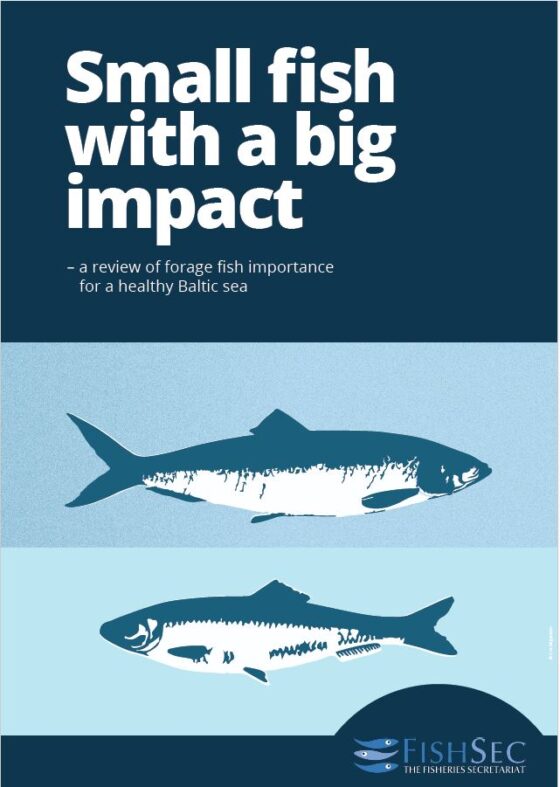Why the Baltic Sea’s Forage Fish Need Urgent Protection
The Baltic Sea is changing, and so are the populations of the small fish at its heart. Forage fish such as sprat and herring are critical to the health of the Baltic Sea ecosystem. They serve as a vital food source for predators like cod, salmon, seabirds and marine mammals, and are key in transferring energy and nutrients through the food web. But decades of high fishing pressure, combined with climate change, pollution, and habitat degradation, have pushed some of these populations to the brink. Today, we are proud to launch our latest scientific report, “Small fish with a big impact” , which dives deeper into the importance of these fish.
Our report emphasises the key role that small pelagic fish (forage fish) play in the Baltic Sea, showing that changes in their stock status have not been sudden but rather the result of ongoing longer processes, driven by high fishing pressure in combination with other factors such as increasing water temperatures, lower salinity and changes in food availability. This decline is affecting both the Baltic ecosystem and the fishing sector in the region.
What’s inside the report?
- A comprehensive overview of forage fish stock status and of their vital role in the Baltic sea ecosystem.
- An overview of pressures affecting their populations.
- A review of current fisheries management and implementation of key existing EU fisheries rules.
- A set of concrete policy recommendations for improved forage fish management, including:
1 Immediate precautionary measures:
- Reduce fishing limits well below maximum sustainable yield
- Maintain strict limits until stock recovery has been observed for at least three consecutive years
- Implement area-specific seasonal restrictions to protect vulnerable populations
2 Long-term ecosystem protection:
- Develop recovery plans for the three vulnerable herring populations
- Protect genetic diversity through population-specific management
- Restore critical spawning habitats and implement seasonal closures
- Strengthen monitoring and enforcement, and improve data quality
3 Science-based management:
- Shift from single-species to ecosystem-based fisheries advice
- Expand research on climate impacts and species interactions
- Update management measures to reflect ecosystem changes
To restore the resilience of the Baltic Sea, we must urgently improve how we manage sprat and herring. These small fish have a big impact—not just ecologically, but economically and socially.
